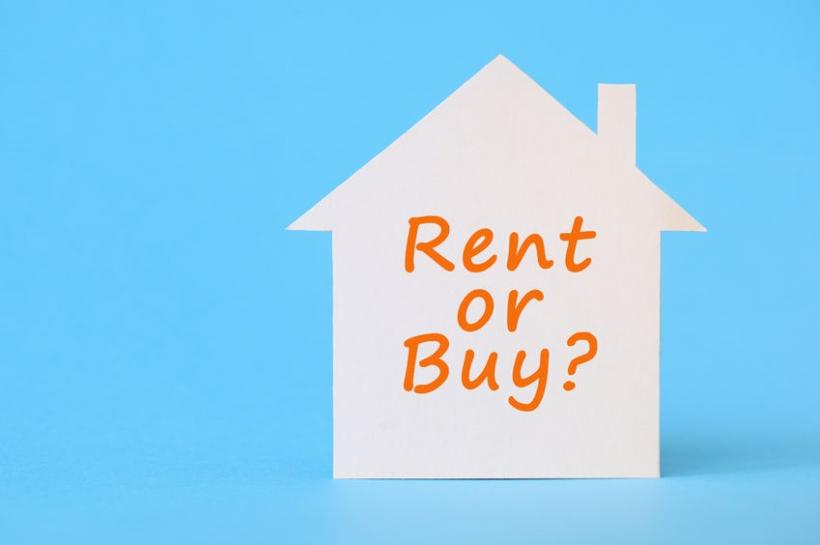
LAST UPDATED: July 10, 2023
There are many views on the pros and cons of buying vs. renting your winter vacation home, and people are persuaded one way or the other for a myriad of reasons.
When it comes to buying, some people plunge right in and buy the first time they visit a destination on holiday. Others take a more cautious approach, renting for a few years so they can get to know a particular destination – and maybe even checking out a few other destinations – eventually buying something when they decide on a place they want to return to year after year.
Still others invest in a vacation home while they are in their 50s and still working, rent it out in the short term, and look forward to using it for their own winters away once they retire.
The pandemic has also changed the landscape considerably for Canadian snowbirds – creating a perfect storm of high interest rates, inflation, tight rental markets, higher rents, and increased real estate prices.
When deciding whether to buy or rent, make sure you consider all of the following benefits and drawbacks to help you make the best decision based on your needs and situation.
Renting a winter vacation home
If you're recently retired and just starting your search for a winter vacation destination that’s right for you, renting is definitely the way to go at first. Many snowbirds prefer the flexibility that renting allows and others don’t want the costs and responsibility of a second home.
However, finding a rental is not as easy as it used to be prior to the pandemic for multiple reasons:
- More and more people are moving to the U.S. sunbelt and other warm-weather destinations, purchasing properties for their own use that were formerly vacation rentals, effectively taking them out of the rental pool.
- More people are either retiring or working remotely in warm weather destinations for the winter, which means more competition for vacation rentals.
In addition to decreasing the number of available rentals, all of this has put pressure on rental prices, with some vacation rentals increasing in price by 2 or 3 times compared to their pre-pandemic rates. Across the board, rental rates have gone up in the U.S. and in other popular snowbird destinations in Mexico, Central America, and Southern Europe.
The Pros of Renting
- You’re not committed to the same building, area, or destination, giving you the freedom to move around from year to year.
- You can move around within a single winter season, trying out different destinations for a month at a time.
- If anything needs fixing at the property, it’s not your problem!
- You don’t have the stress and headaches that come with managing a vacation property year-round.
- You’re not responsible for the many costs associated with owning a vacation property such as taxes, maintenance, condo fees, utilities and more.
- You won't have to consider the possible tax issues faced by Canadians who own and decide to sell their foreign real estate.
- You don’t have to worry about estate planning and what will happen to your property after you’re gone.
The Cons of Renting
- It is becoming increasingly difficult to find vacation rentals as demand increases due to so many people reaching retirement age and all of the pandemic-related reasons mentioned previously.
- Competition for rental units is fierce, so if you want to rent for a shorter period than someone else, you will lose out.
- Rental rates are going up. High-season rents (Jan-March) are going up each year as demand increases. You can expect to pay anywhere from $2,500 U.S. to $10,000 U.S. and up per month. Beachfront and ocean views can be even higher.
- Rental units are rarely well equipped in the kitchen in particular, so you often have to bring a lot of your own gadgets and equipment or you have to buy locally.
- Rentals offer very little date flexibility – they’re normally available for a minimum of one month, starting on the 1st of the month and requiring you to vacate on the last day of the month – although some hotels, resorts, and condos offer long-stay options with weekly rental rates.
- Rental units can often be “tired” in appearance and not freshly decorated or furnished.
- Your rental unit may not come with a Smart TV with Netflix, Amazon, and other streaming services.
- Many rental units often don’t allow pets, or they limit the size and number of pets you can have.
Buying a winter home
If you find yourself renting for 4 months or more in the same destination year after year, then experts agree you’d usually be better off economically by buying. Of course, to achieve this you either have to have the necessary capital or the means to borrow.
However, prices have gone up dramatically since the pandemic and there are few bargains around any longer. This is particularly true in Florida where prices have often doubled in recent years.
To fund the purchase of a U.S. winter vacation home, some snowbirds will use a line of credit on a Canadian property, some will use available cash or investments and some will work with their Canadian banks to arrange a U.S. mortgage or arrange a mortgage with a U.S. bank directly.
However, financing a property has become more challenging, as interest rates have increased dramatically and the cost of borrowing is much higher than it was a few years ago. Canadian rates remain slightly lower than U.S. rates for mortgages and HELOCs. Remember, using a Canadian line of credit guarantees your payments are not subject to currency fluctuations, while U.S. mortgages can be tricky for Canadians and have exposure to currency fluctuations.
Regardless of how you plan to fund the purchase of your winter vacation property, there are many things to consider before you buy, not the least of which are ongoing costs, tax implications, and estate planning.
The Pros of Buying
- It may even be cheaper to own, if you were a long-time renter (4 months or more).
- When you own, you can come and go as you please.
- You can choose a design you like and decorate to meet your taste.
- You don’t have to worry about availability from year to year or stress about finding a rental.
- You can leave your belongings there so you don’t have to bring a lot with you or shop for new items every year.
- You can get specialty TV channels, Netflix and other services you like
- If you want, you can rent your unit out when you are not using it to bring in income (but be aware there may be tax consequences).
- You can take your pets with you (within the rules of your condominium or club guidelines)
The Cons of Buying
- You’ll be going to the same place every winter - a great comfort for many - but not for those with itchy feet!
- The dollar. Currency fluctuations can play havoc with your budget for ongoing expenses and your U.S. mortgage or HELOC (if you have one)
- If you want to rent out your unit, there could be tax implications. Be sure to get professional advice.
- If you own a property in the U.S. and sell it (or otherwise dispose of it), there will be U.S. capital gains and other tax consequences, which will differ depending on your circumstances and how your structure the ownership of your property. Speak to a cross-border tax and real estate lawyer for details.
- Dying can bring complications. You need to thoroughly understand U.S. estate law and what would happen if you or your spouse were to die while owning property in the United States. Consult a legal expert on this.
Similarly, if you own in Mexico or other countries, be sure to seek advice on how local laws apply in the event of your death or that of your spouse. - Costs! Depending on the type of property you buy, you will be responsible for maintenance costs, property taxes, utilities and homeowners insurance. Depending on the type of property you buy, you may also have condo fees and club membership fees. Be sure to look at the Reserve Fund status of any condominium purchase and find out how financially viable the project is.
- You’ll need to hire a person or home watch company to look after your property when you are not there
















